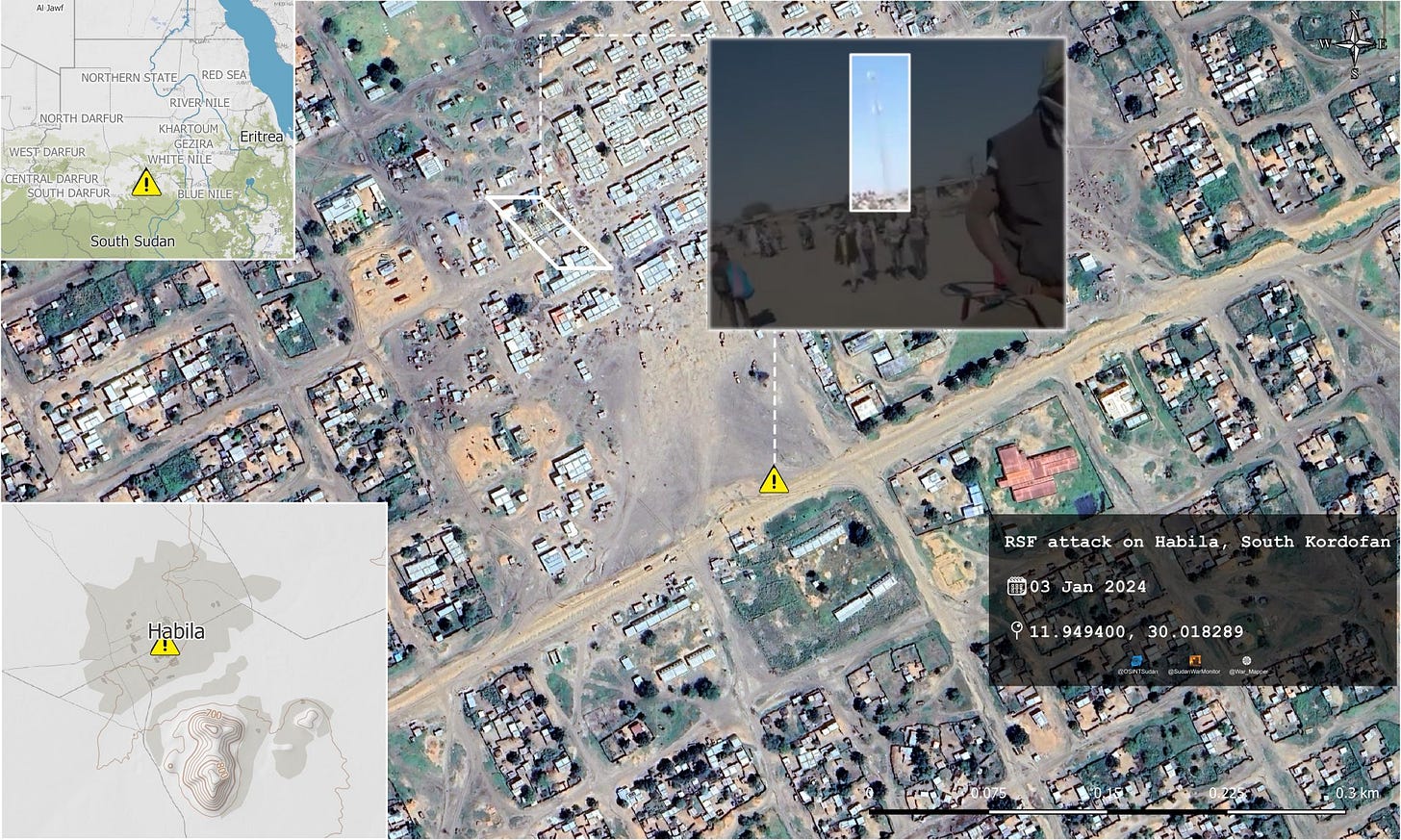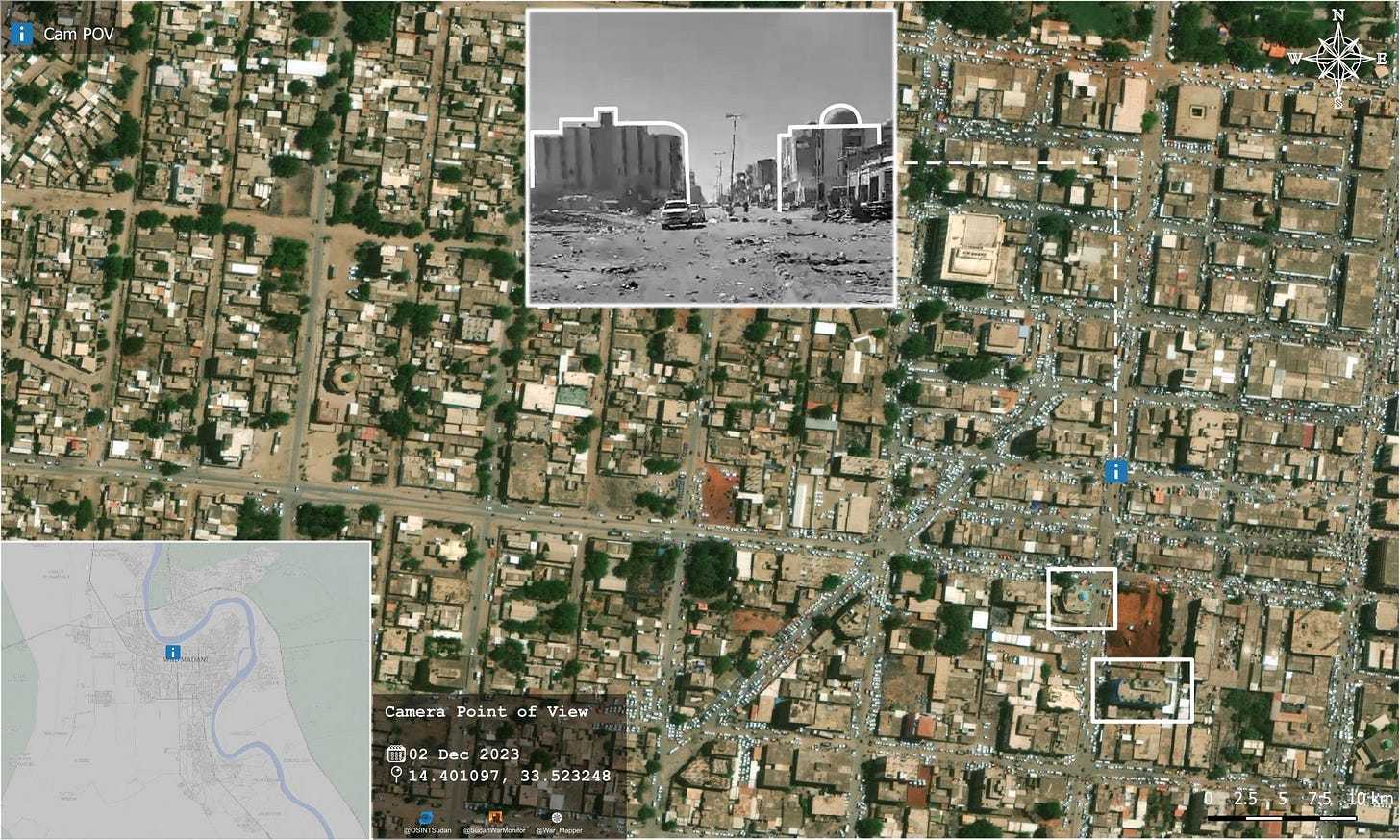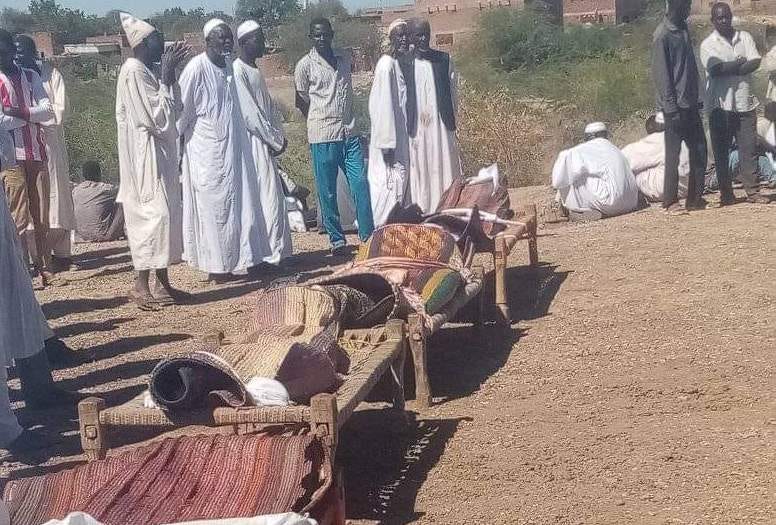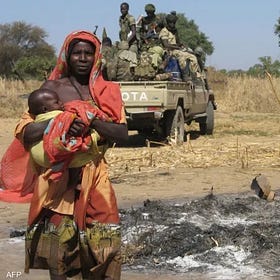RSF attack Habila in the Nuba Mountains
Plus: Airstrikes in Jezira State and eastern Sennar
The Rapid Support Forces attacked Habila, 50 km east of Dilling, extending the paramilitary’s control into the Nuba Mountains region of South Kordofan State.
Judging by the above video clips, RSF clashed with the army and took control of the main market (01:17) and government buildings (2:30), where they captured some prisoners from the army.
“We are now inside Habila. We send a message to the people of Dilling [i.e., the army garrison]: We are coming for you,” said an RSF fighter in the second video clip (0:33).
These video clips began circulating widely on social media yesterday. But some of the accounts that initially shared them said they depicted events that took place December 31, but which did not come to light sooner due to a network outage.
Despite the RSF’s advances in South Kordofan, the army still has garrisons in several places. They also retain the loyalty of a militia headed by Emir Kafi Tayara. While interrogating prisoners in the above video, the RSF soldiers asked “Where are the officers?” suggesting that some SAF troops withdrew from Habila and could still be present in the area, or traveled to join up with forces elsewhere.
As the RSF extend their control in South Kordofan, the risk of conflict increases between RSF and the Sudan People’s Liberation Movement (North), which controls large swathes of the Nuba Mountains and long has fought for control of the region.
Members of RSF and SPLM-N clashed last month around Dilling, though the RSF afterwards denied involvement, calling the clashes “tribal violence.” The RSF’s quick denial signaled the RSF political leadership’s eagerness to maintain neutral relations with SPLM-N so as not to open a new front in the war.
Meanwhile, in North Kordofan, RSF forces made an incursion into Bara north of El Obeid on Tuesday. Residents told Radio Dabanga that there had previously been an agreement between locals and the RSF to stay out of the city, but tensions rose in villages east of Bara due to “popular resistance” and the killing of three RSF last week.
Bombing in Wad Madani
Warplanes allegedly bombed Wad Madani and Hajj Abdullah in Jezira State on Tuesday, January 2. This video (warning: graphic content) show two victims near a damaged building, including one man wearing a traditional jellabiya, and another who was pushing a wheelbarrow. The video was geolcoated to Jamhuria Street in Wad Madani's main market area. Although filmed by the RSF, the video corroborates a report by the Wad Madani Resistance Committees that the Air Force “dropped some explosive barrels on Jamhuria Street in the Grand Market in the city of Wad Madani.”
Hala Al-Karib, a women’s rights activist, commented on the video saying, “SAF is bombarding innocent unarmed civilians of Wad Madani, Gezira region, after they abdicated their responsibilities in protecting civilians and ran away, leaving people confronting the RSF crimes. This is a blatant war crime.”
The Wad Madani Resistance Committees also reported that the Air Force bombed the village of Hajj Abdullah in southern Jezira State, resulting in civilian casualties. Photos showed damage to homes and at least four victims.
A third airstrike was reported in Wad al-Abbas village, east of Sennar, drawing condemnation from activist group Emergency Lawyers, which stated,
“Once again, the Armed Forces Air Force carried out a bombing that did not achieve its military objectives and instead caused the death of two children from the village of Wad al-Abbas, while others were injured. We condemn this behavior and the indiscriminate bombing carried out by the armed forces in areas populated by civilians especially this village where there is no concentration of RSF forces.”
The villages of Wad al Haddad ad Wad al-Abbas are about 10 km apart on opposite banks of the Blue Nile.
Separately, resistance committees accused the RSF of looting Jezira University, including all the offices of the professors and staff, its savings bank and branches, the university farm, and the homes of instructors.
Red carpet treatment for Dagalo in Kenya
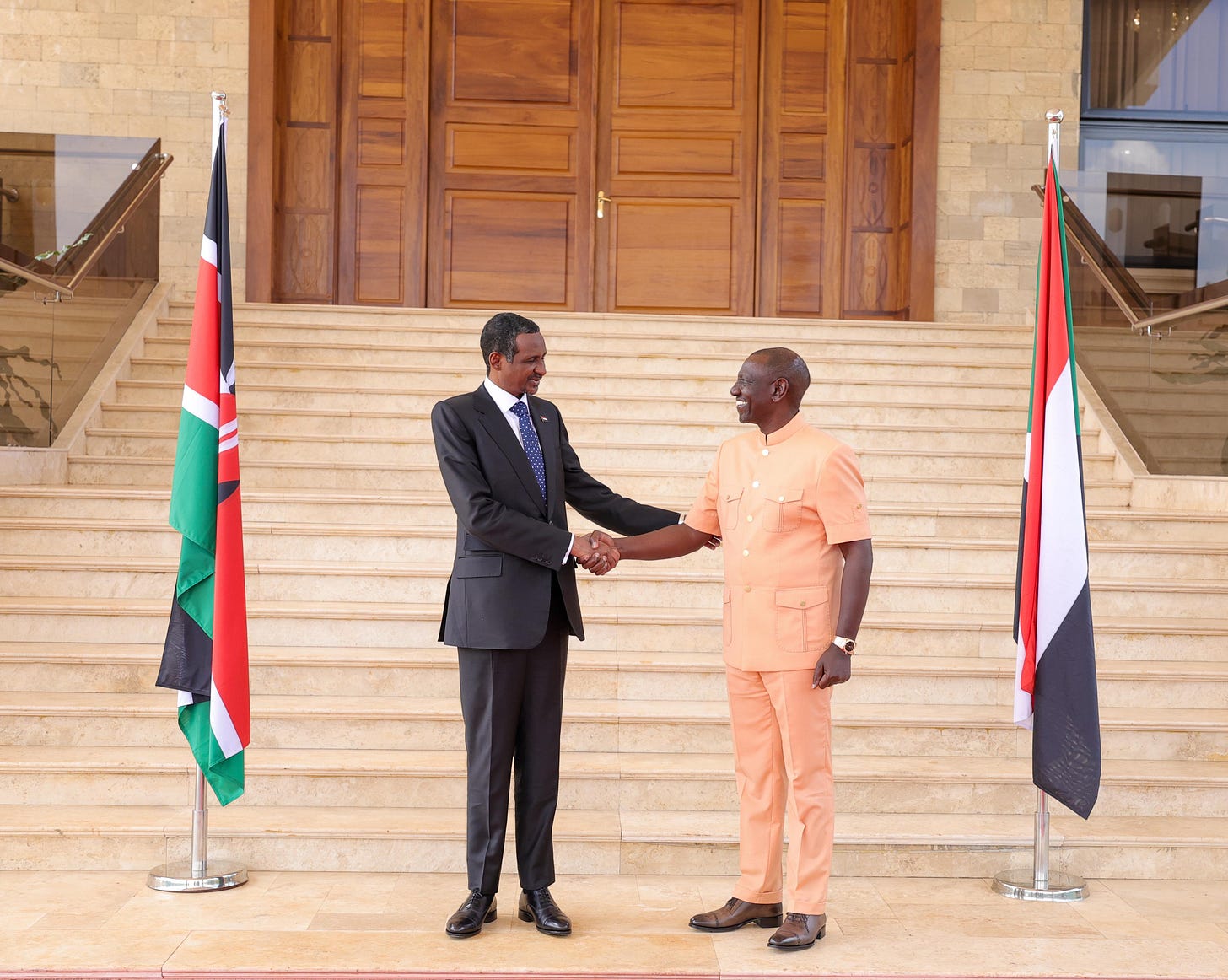
Kenya’s President William Ruto yesterday received with the leader of the Rapid Support Forces, Mohamed Hamdan Dagalo. The visit followed Dagalo’s recent meetings with the leaders of Djibouti, Ethiopia, and Uganda. In all these countries, Dagalo was warmly received, but Kenya’s treatment of the paramilitary leader stood out. Ruto rolled out the red carpet for Dagalo, treating him as a visiting head of state.
In a statement after the meeting, the RSF spokesperson said,
Dagalo briefed the Kenyan President on the vision of the Rapid Support Forces for a ceasefire and the start of negotiations to reach a comprehensive solution and achieve just and lasting peace in Sudan. The Commander of the Rapid Support Forces thanked the great efforts made by Kenya and His Excellency President William Ruto, along with the IGAD countries, in helping Sudan end the war...
RSF have repeatedly broken past ceasefires and have not committed concretely to a new ceasefire, nor complied with confidence-building measures agreed on in Jeddah.
Invitations to an evening press event for Dagalo, circulated to Kenyan media by a hired public relations firm, referred to Dagalo as “excellency”—a title usually reserved for heads of state or other top officials. The event was cancelled when Dagalo didn’t show up. RSF’s media team produced the following video about the visit:
In brief
In recent days, humanitarian organizations have distributed tens of thousands of relief items to people in Gedaref, Sennar, and White Nile, including blankets, mosquito nets, kitchenware, buckets, etc. Many of the recipients had arrived recently from Jezira State, which the RSF attacked last month.
Two Sudanese armed groups have opened training camps in Eritrea, according to Darfur 24: the Sudan Liberation Movement led by Minni Minawi and the Popular Front for Liberation and Justice in Eastern Sudan led by El Amin Daoud.
Former Prime Minister Abdallah Hamdok traveled to Djibouti where he met with President Ismal Guellah, ahead of a proposed meeting between the RSF and SAF leaders in Djibouti in coming days, the details of which are yet to be confirmed.
ICYMI: West Darfur governor reports cross-border attack from Chad
ICYMI: Map of the SAF and RSF areas of control in Central Sudan
Background reading
Q&A about Sudan’s conflict for the uninformed
This guide is for readers who are interested to learn more about the war in Sudan but don’t have any knowledge about it.


